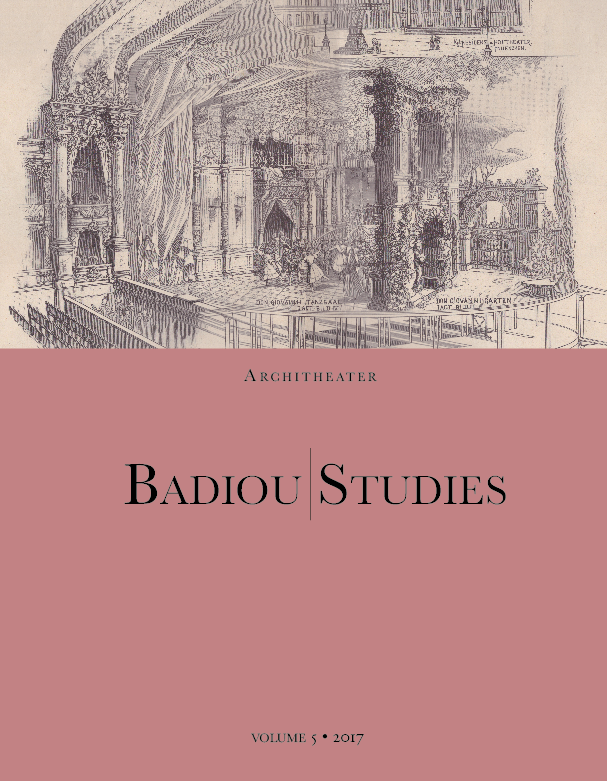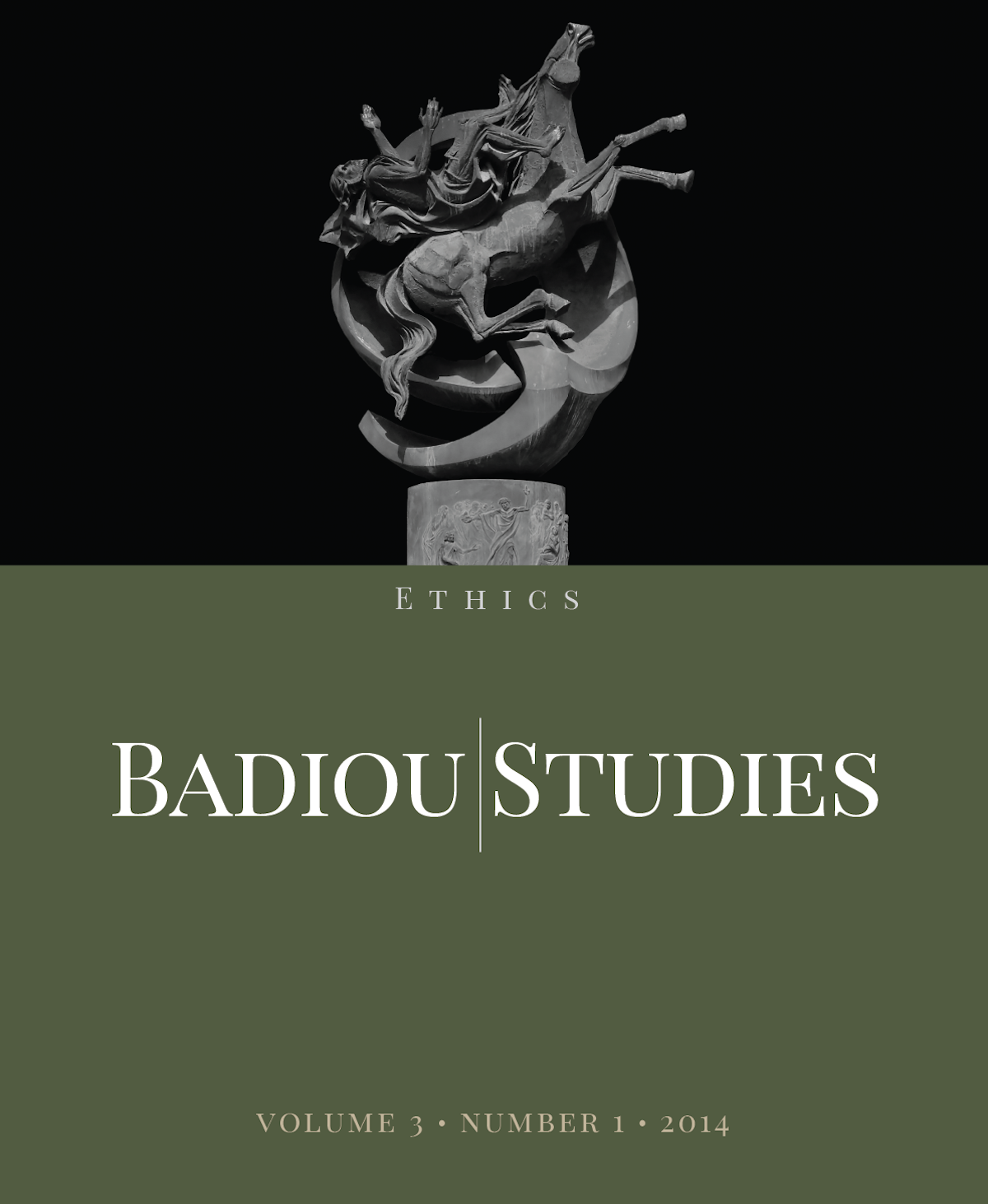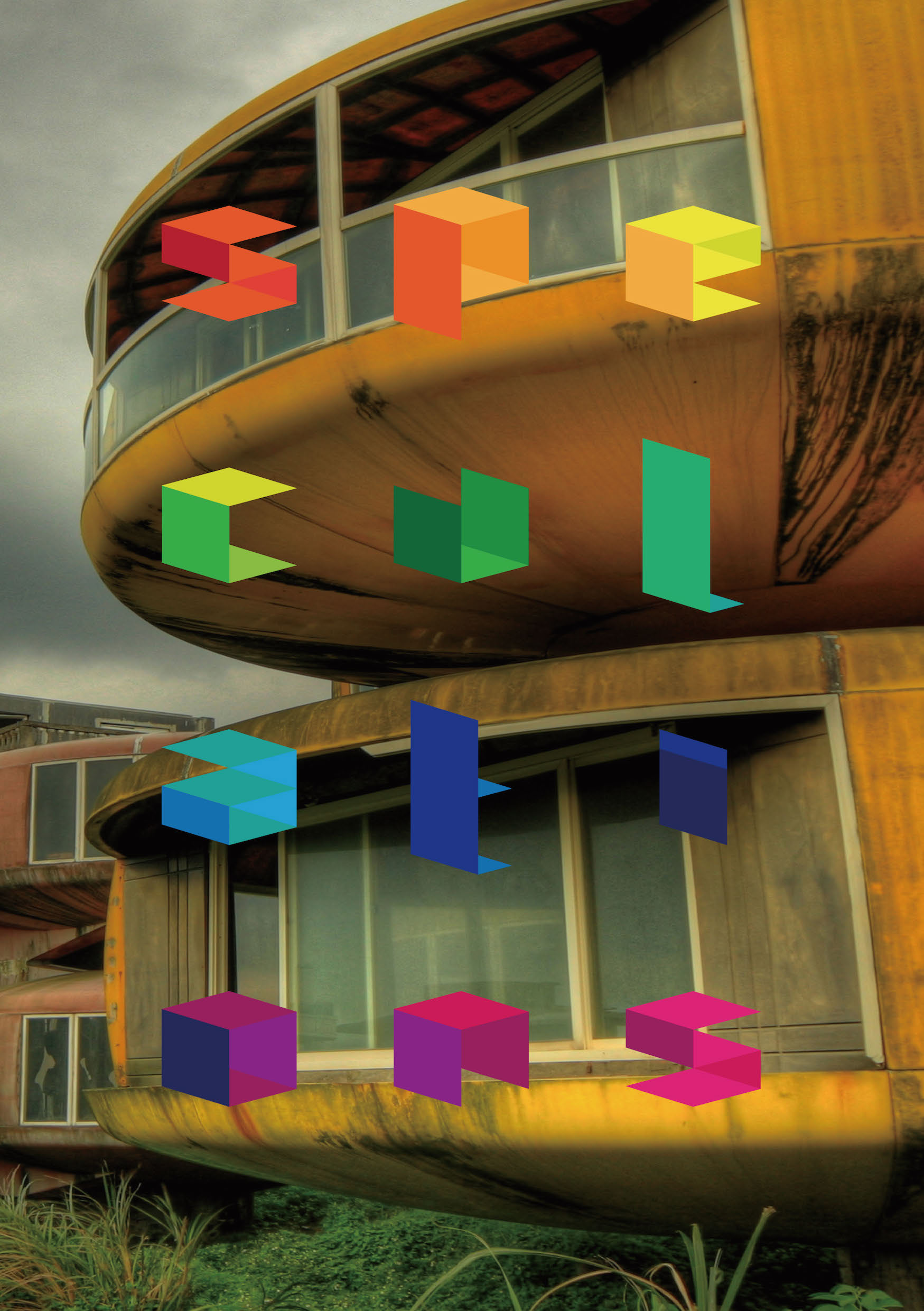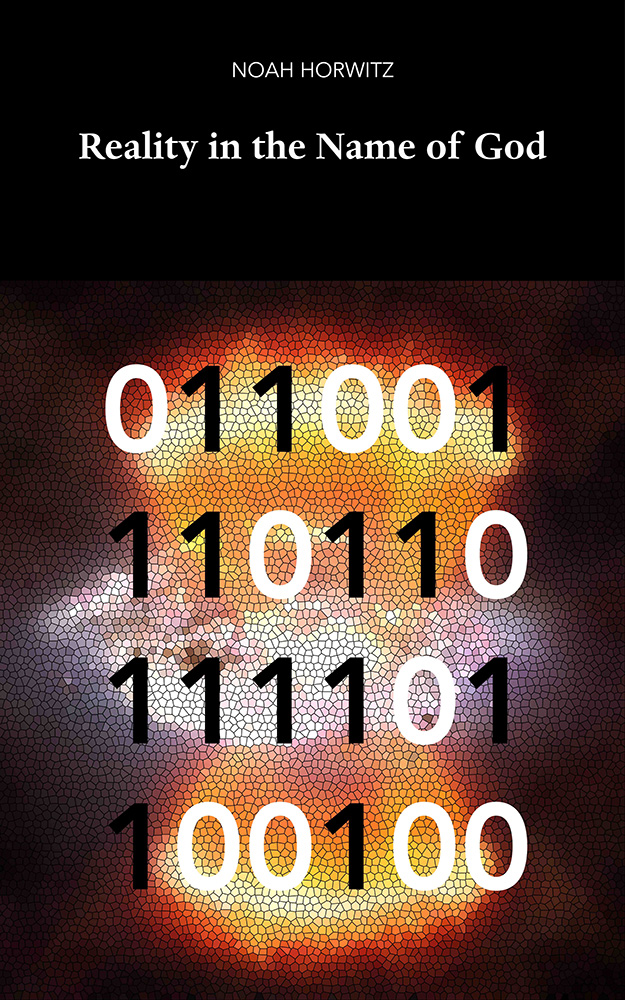The fifth volume of the Journal of Badiou Studies, “Architheater,” energized by the publication of Badiou’s Rhapsodie pour le théâtre (2014), knits together distinguished approaches to artistic production engaging with the work of Alain Badiou: ‘Engaging’ here means articulated positions that include, imply, or criticize the Badiouiesque corpus. The issue does not therefore seek to implement Badiou’s philosophical insights in interpretations of art or of aesthetics, but rather to take Badiou’s philosophy as a center of convergence-nexus of a plethora of philosophical positions that include artistic production as a central element of their structure. Thematically, the volume limits its discussion to “a two” of architecture and theater, thinking their overlapping, juxtaposition, and respective generative capacities.
JBS 5 suggests superimposing these two “media” and posing them at the center of the volume for several reasons: Politically, both theater and architecture actively engage in the life of the polis, they effectually and factually demand the participation of collective and material actors. Poietically, both media manifest a comprehensive form of artistic production, that is to say they both include elements and organs (actors, designers, lighting-specialists, engineers, planners, executives, actors, dancers, etc.) that are required as collaborators in the realization of the piece. The Architect, on the one hand, and the Theater maker, on the other, both produce what could be defined as a world, or, in Badiou’s terms, a formation of a subject.
Moreover, JBS 5 explores the political aspect of the relationship between Badiou’s concept of “state” (l’état) and the architheatrical activity. Indeed in Thèses sur le théâtre (1995), Badiou writes: “La difficulté générale du théâtre, à toutes les époques, est son rapport à l’Etat.” If one considers this paradigm with Badiou’s L’être et l’événement in mind, one could analyze the manner in which the arts work with and/or against ontology, as well as carry an ethical tenor, with their responsibility towards a Truth. Badiou, an active playwright himself, integrated into his thought from early on dramatic and theatrical topoi. Already in Théorie du sujet, one finds the Greek theater as an active player in his architecture of the subject. The activities of construction, conditions, subtraction, installation, generation, modelling all being prominent terms in the philosophy of Badiou, should be conceived within an architheatrical framework. Present-day artistic manifestations — such as the art-fair, video art, installation art, site-specific arts, performance etc. — could be viewed as re-generating an art “form,” the architheater in which ontology, that is to say space, is configured by reality (that is to say duration or history). Finally, the “Il y a de deux” of theater and architecture invites to rethink the role of the receptor (otherwise known as the “spectator” the “public” or the “inhabitant”) of art, an issue having to do with the Badiou-Rancière debate. Naturally, the volume tries to take advantage of Badiou’s philosophy in order to think beside rather than within the Aesthetic regime to the best possible extent, adopting instead a generative, that is to say a poietical, productive approach to art.
TABLE OF CONTENTS
Adi Efal-Lautenschläger – Introducing Architheater: Modellings
Martin Puchner – The Theater of Alain Badiou, with New Preface
Daniel Whistler – ‘Unutterable Utterances’ and ‘Mysterious Naming’: Nomination in Badiou and the Theater of Mysticism
Johannes Schick – Theaters of Individuation: Gilbert Simondon and the Interrelations of Ethics, Techniques and Ontology
Aline Wiame – What Does It Take to Open a Theater? The Réouverture des Halles Experiment in Brussels
Renaud Pleitinx – Badiou en Architecture
Marc Belderbos – Dispositions au pas du Réel
Arthur Rose – The Theater of Modern Philosophy: A Review of Alain Badiou, Rhapsody for the Theatre, trans. Bruno Bosteels (Verso, 2013)
ABOUT THE JOURNAL
Journal of Badiou Studies (General Editors: Michael J. Kelly and Arthur James Rose) is a multilingual, peer-reviewed journal dedicated to the philosophy and thought of, and surrounding, the philosopher, playwright, novelist, and poet Alain Badiou. Badiou Studies is dedicated to original, critical and challenging arguments that directly engage with the conditions and circumstances of Badiou’s thought. We aim to identify pertinent intellectual discourses, ideas, historiographies, and concepts, and seek articles that situate these theories within emerging events in politics, science, art and love. Badiou Studies is especially concerned with maintaining a fidelity to Badiou’s thinking without collapsing into hagiography or celebrity fetishism. This is why we encourage works that actively critique Badiou’s philosophy and his currency as an established philosophical figure. Badiou himself embraces this approach and serves on the journal’s Advisory Board. Visit the journal’s website HERE.




